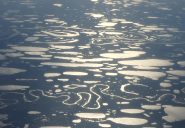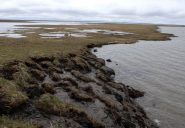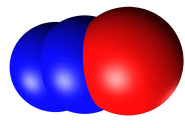
More research in the unknown role of microbes in thaw lakes is urgently needed, a new review paper by NESSC-scientists underlines. Permafrost areas across the globe are slowly thawing
/ read more


More research in the unknown role of microbes in thaw lakes is urgently needed, a new review paper by NESSC-scientists underlines. Permafrost areas across the globe are slowly thawing
/ read more
PhD Candidate: Anniek de Jong Defence date: 07-05-2020 Time: 16:30 Institute: Radboud University & Research Location: Academiezaal Aula, Comeniuslaan 2, Nijmegen
/ read more
Labwork, fieldwork, or just grabbing a coffee with your fellow scientists – all the usual, scientific activities have come to a halt at NESSC due to the current corona-measures.
/ read more
Young soils in the East Siberian Arctic provide the majority of released greenhouse gases, a new NESSC article , published in Nature Communications, shows. Rising temperatures in the Arctic
/ read more
Anaerobic microbes produce more nitrous oxide (N2O), a strong greenhouse gas, with rising temperatures, a new research article published in Nature Climate Change shows. The researchers also find that
/ read more